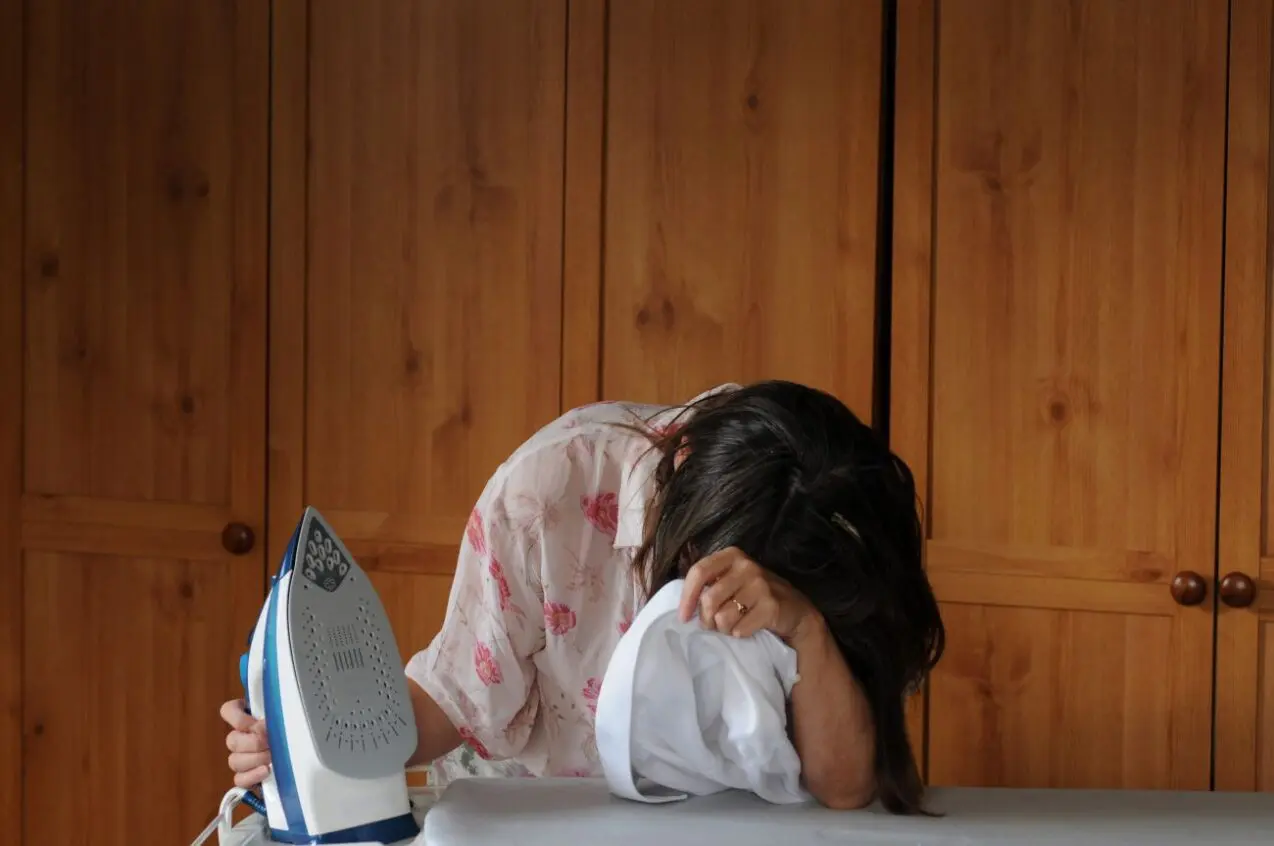The ‘trad wife’ lifestyle is a trend capturing attention across social media. Tradwife stands for traditional wife and refers to women embracing old-fashioned gender roles from the 1950s era. Wives focus solely on homemaking duties while husbands work and make major decisions. This way of life is sparking debates about its effects on marriages and women’s well-being.
Beautiful scenes of perfect homemaking flood social media from trad wife influencers. They share snippets of baking bread, keeping flawless homes, and caring for children. These posts paint a nostalgic picture of 1950s family life with a happy, devoted housewife. But behind the scenes, some former trad wives reveal a darker reality of restrictions and unhappiness.
Enitza Templeton is one woman who lived the trad wife lifestyle for a decade in Littleton, Colorado. Now 41, her days used to start at 4 a.m., making meals from scratch and doing housework, all while caring for four kids. Her husband worked while she managed the home duties. Despite appearing perfect online, Templeton says she was “miserable” and “unfulfilled” in this traditional setup.

Raised in an evangelical Christian family, Templeton was taught the husband should have full authority over the wife. This belief contributed to her lack of autonomy and independence in the marriage. After seeing a therapist, she realized the unbalanced power dynamic. At 37, she got divorced and obtained food stamps and a school job to support her kids alone.
Mental health experts warn that trad wife constraints raise risks. The wife loses financial power by not working. The husband controls all money and big decisions, allowing potential abuse. With no income or decision power, a trad wife can lose her sense of self-worth and confidence over time.
“It’s a high-risk situation where someone could get lost and feel overwhelmed without being appreciated by their controlling partner,” says Christine Borzumato-Gainey, a counselor at Elon University. Suzanne Degges-White, a Northern Illinois University professor, stresses the importance of both individuals maintaining autonomy and life purpose beyond just the marriage roles.
On the other hand, influencers like Alexia Delarosa feel genuinely happy embodying the role of a trad wife. Her husband works, while she stays home with the kids. But she doesn’t think the lifestyle is for everyone.
“I don’t think that there’s one way to live or one way that a family’s dynamic should work; every family is different,” she said. Delarosa always knew she wanted to be a mom. “I wanted to be the one at home with them, doing all the activities like cooking and baking and all of that good stuff. So, it was always a plan. And luckily, it worked out for my family.”
While influencers like Delarosa feel genuinely happy as a trad wife, others like Templeton want to raise awareness. Psychologist Kelly Campbell advises, “You can’t lose your identity through one relationship.” She recommends keeping individual passions, friend circles, and possible career backup plans.
Healthy communication, shared decision-making, and personal freedoms allow partnerships to thrive, experts say. But trad wife dynamics often restrict the woman’s voice and outside life. This dependency can breed resentment, entrapment, and marital struggles.
Templeton made sure her four daughters knew they had choices beyond faith-based housewife roles. After leaving her trad marriage, she started a podcast empowering single moms and women escaping strict religious relationships. Her viral videos discuss the difficulties of obtaining freedom and income with no recent job experience.
Templeton believes it is important for her children to see that their mom is always not perfect. “Putting moms on this pedestal of perfection is damaging to literally everybody, the whole world. Because when your mom falls — because she will, she is a human — you’re going to be so hurt that she fell from so high,” she said.
Templeton told CNN, “Social media makes everything look pretty with 30-second clips but leaves out years of ugliness.” The illusion of perfectly content homemakers conceals the potential isolation, depression, and power imbalances some trad wives quietly endure.
While the ‘trad wife’ lifestyle appeals to some, mental health experts urge caution. Unique family dynamics require mutual understanding and compromise to succeed long-term. Relationships should provide both people a sense of purpose beyond just gender roles.
The spread of this trend across social media reveals differing viewpoints on women’s modern roles and societal expectations. As the ‘trad wife lifestyle’ continues to gain popularity on social media, experts stress the importance of maintaining a balanced life, fostering open communication, and having a support system in place. Templeton’s experience serves as a reminder that the romanticized portrayal of this lifestyle trend often omits the underlying struggles and potential risks to mental health and personal autonomy.
Although some people may find the trad wife lifestyle appealing, it's important to approach it cautiously and be aware of the possible implications. Open communication and understanding are essential for navigating the difficulties of contemporary relationships and cultural expectations, even as arguments on the trend's effects on marriages and mental health continue.

 Colorado nonprofit provides safety gear to homeless after tragic death previous Christmas
Colorado nonprofit provides safety gear to homeless after tragic death previous Christmas
 Five facts about electric vehicles in 2024
Five facts about electric vehicles in 2024
 5 elections to watch in 2025
5 elections to watch in 2025
 Hwang Dong-hyuk on killing off his 'Squid Game' characters and wanting to work with Jake Gyllenhaal
Hwang Dong-hyuk on killing off his 'Squid Game' characters and wanting to work with Jake Gyllenhaal
 Erling Haaland misses penalty and Man City drops more points after 1-1 draw with Everton
Erling Haaland misses penalty and Man City drops more points after 1-1 draw with Everton
 Transform the daily grind to make life more interesting – a philosopher shares 3 strategies to help you attain the good life
Transform the daily grind to make life more interesting – a philosopher shares 3 strategies to help you attain the good life
 What if you could rank food by ‘healthiness’ as you shopped? Nutrient profiling systems use algorithms to simplify picking healthy groceries
What if you could rank food by ‘healthiness’ as you shopped? Nutrient profiling systems use algorithms to simplify picking healthy groceries
 Christmas shooting at Phoenix airport leaves 3 people wounded, 1 stabbed
Christmas shooting at Phoenix airport leaves 3 people wounded, 1 stabbed
 The ‘trad wife’ lifestyle is a trend capturing attention across social media.
The ‘trad wife’ lifestyle is a trend capturing attention across social media.






